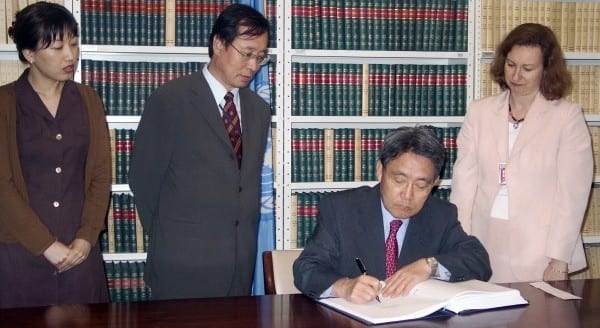
The WHO Framework Convention on Tobacco Control (FCTC)
Action on Smoking and Health has been instrumental in the success of the global tobacco control treaty by supporting and serving as the secretariat for the Framework Convention Alliance (FCA) from 2000 – 2015. The FCA is a unique confederation of civil society organizations that includes more than 350 organizations from more than 100 countries. The FCA has been widely recognized by governments, non-governmental organizations and the World Health Organization (WHO) for its vital role in shaping and implementing the Framework Convention on Tobacco Control (FCTC).
ONE BILLION DEATHS: According to the World Health Organization (WHO), that is the number of tobacco-related deaths the world can expect to see in the 21st century. 650 million of the one billion haven’t even been born yet and the majority of these deaths will be in poor countries.
Additional Facts from the WHO:
- Tobacco kills up to half of its users.
- Tobacco kills nearly six million people each year, including 600,000 nonsmokers who are dying because of their exposure to second-hand smoke.
- Unless urgent action is taken, the annual death toll could rise to more than eight million by 2030.
The tobacco epidemic has been spreading globally through many complex factors with cross-border effects, including trade liberalization; direct foreign investment; global marketing; transnational tobacco advertising; promotion and sponsorship; and the international movement of contraband and counterfeit cigarettes.
Faced with increasing regulation and greater awareness of smoking-related health risks in many high income countries, the tobacco industry is searching for more markets in low income countries.
The tobacco epidemic is a global problem requiring a global solution.
The Tobacco Treaty: The WHO Framework Convention on Tobacco Control (FCTC) was the world’s response to the global tobacco epidemic. The FCTC was the first global public health treaty negotiated under the auspices of the WHO. It was completed in 2003, and has now been joined by 180 countries and the European Community.
What the Treaty Requires: The treaty reaffirms the right of all people to the highest standard of health and calls for parties to the convention to:
- Protect people from tobacco smoke exposure on public transport, indoor work environments and public places;
- Adopt or maintain taxation policies aimed at reducing tobacco consumption;
- Enact and undertake comprehensive bans on tobacco advertising, promotion and sponsorship;
- Ban misleading and deceptive terms on cigarette packaging such as “light”, “low-tar” and “mild”;
- Implement rotating health warnings on tobacco packaging that covers at least 30% (ideally 50% or more) of the display areas – these may include pictures or pictograms; and
- Combat illicit trade in tobacco products.
ASH was instrumental in the development and adoption of the tobacco treaty, the WHO FCTC, which is grounded in fundamental human rights and freedoms and is a founding member of the Human Rights Tobacco Control Network, an initiative to bring together allies in various fields to focus on tobacco control as a human rights issue.
PHOTO CAPTION: (June 28, 2004) Ambassador Kim Sam-Hoon, Permanent Representative of the Republic of Korea to the United Nations, signs the World Health Organization (WHO) Framework Convention on Tobacco Control and the Agreement on the Privileges and Immunities of the International Criminal Court. (UN Photo/Gitika Noyes)
Helpful Related Links:
Framework Convention Alliance >








